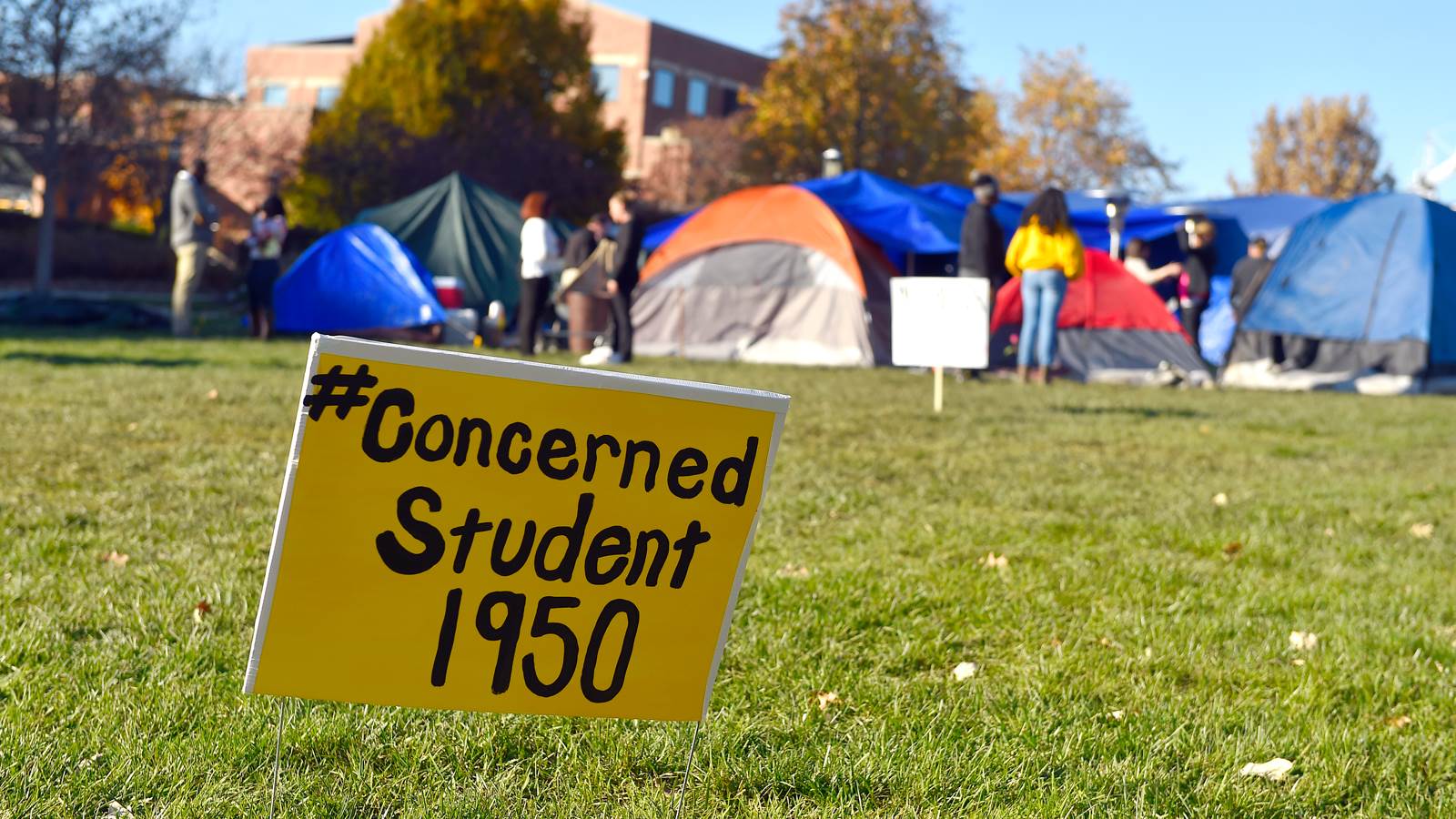November 9, 2015, Troy, New York The University of Missouri School System’s Board of Regents met at 10 a.m. and shortly thereafter, President Tim Wolfe resigned. Wolfe was under pressure due to a hunger strike, threatened boycott of a football game by the players, and a planned walkout by the faculty. Wolfe, who has a background as a business executive, was viewed as dismissive of students’ concerns over numerous racial incidents on campus in Columbia.
A group called Concerned Student 1950, named for the year the first black student attended the university, was formed. Graduate student, Jonathan Butler, began a hunger strike with a stated goal of President Wolfe’s resignation.
On Saturday, after a game against Mississippi State, black players on the Tigers’ football team threatened to not practice or play in an upcoming game against Brigham Young. Forfeiture would automatically cost the university $1 million, plus it would see a potential loss of revenue from ticket sales.
On Sunday, head coach Gary Pinkel offered support to the players though word leaked out that there was not a consensus among the football team that a boycott was indeed needed. Also the faculty threatened a two-day walkout which expedited President Wolfe’s exodus.
The firestorm created by a potential boycott of a college football game drew national attention to the students’ cause.
We have seen athletes’ protest in the past to mixed results. Muhammad Ali became a conscientious objector to the Vietnam War, was stripped out his heavyweight title and missed three years of competition in his prime.
Kareem Abdul-Jabbar, then known as Lew Alcindor, boycotted the 1968 Olympics in Mexico City by not competing as a member of the US men’s national team due to racial unrest through the country. Curt Flood fought Major League Baseball’s reserve clause in court after being unwilling to agree to a trade from the St. Louis Cardinals.
Flood sat out an entire season and ultimately lost his case.
Lastly, Spencer Haywood left college early to pursue a career in pro basketball. Initially, Haywood competed in the ABA and later signed with the Seattle Supersonics of the NBA. An injunction was filed in order to prohibit him from joining the Sonics. Haywood won his case before the U.S. Supreme Court and the “hardship rule” was created to allow athletes who showed financial hardship to compete as professionals in basketball.
I am sure I am overlooking numerous trailblazers in and out of sport. Today has seen a seismic shift in college athletes dealings with school administrators.
Bravo, despite their 4-5 record on the field, the Mizzou Tigers are winners.
